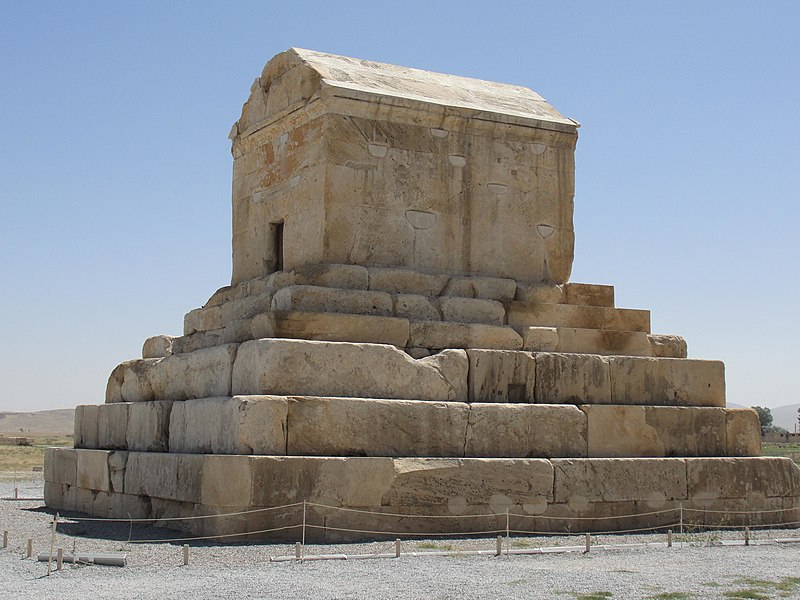Ancient Archaic Period - 500-400 BCE Achaemenid Persian Empire AV Daric, NGC MS
ACHAEMENID PERSIA. Darius I-Xerxes II (circa 5th century BC). AV Daric (17mm, 8.26 gm). NGC MS Strike: 5/5 – Surface: 5/5. Lydo-Milesian standard. Sardes mint, circa 485-420 BC. Obverse: Persian king, wearing cidaris and candys, quiver over shoulder, in kneeling-running stance right, drapery in angular form from left knee to ground, right knee obscured by drapery, transverse spear in right hand, bow forward in left. Reverse: irregular rectangular incuse punch. Sources: Carradice Type IIIb, Group A/B. Sunrise 24. High-relief, boldly struck and lustrous. Well centered.
From the Historical Scholar Collection
Tomb of Cyrus the Great, in Pasargadae, Iran, a UNESCO World Heritage Site. It was Cyrus who introduced gold coins to the Persian Empire.
This coin is a Persian Daric, a gold coin which, along with the silver Siglos, represents the bimetal coinage of its era. Cyrus the Great introduced coins to the Persian Empire after 546 BC. It was Darius I (521-486 BC) who introduced a thick gold coin with a standard weight of 8.4 grams that equaled the value of 20 silver coins. The Daric presents an image of the Persian king holding a bow in his left hand and a spear in his right. He appears to be wearing a crown upon his head. The gold employed for striking these coins was high grade: it had a purity of 95.83 percent.
| Grading Service | NONE |
|---|---|
| Year of Issue | NONE |
| Grade | NONE |
| Ancient Year Range | 5th C. BC |
| Denom Type | N/A |
| Numeric Denomination | AV Daric |
| Mint Location | NONE |
| Designation | NONE |
| Circ/UnCirc | Not Specified |
| Strike Type | N/A |
| Holder Variety | Strike 5/5; Surface 5/5 |
| Grade Add On | NONE |
| Holder Type | N/A |




